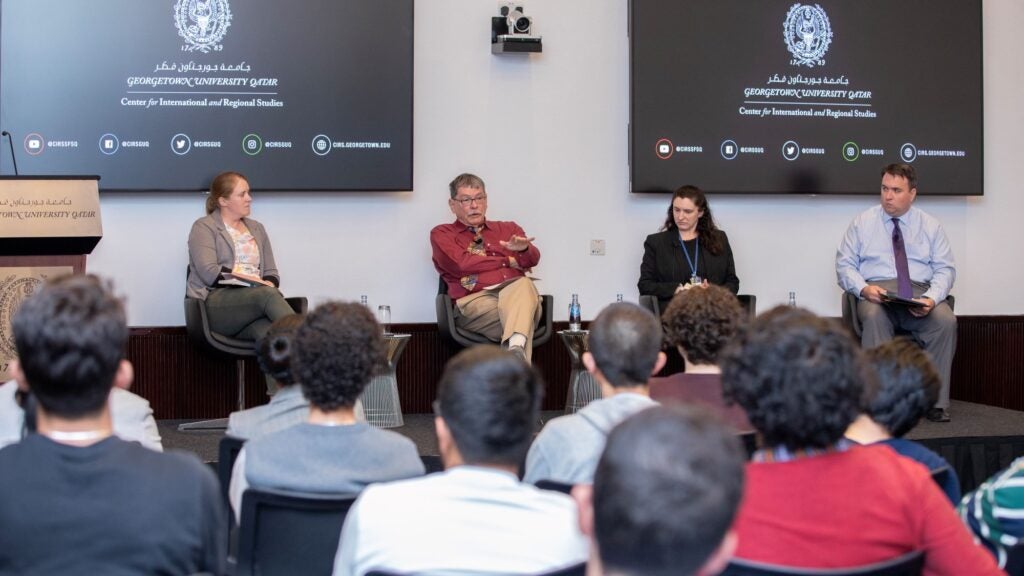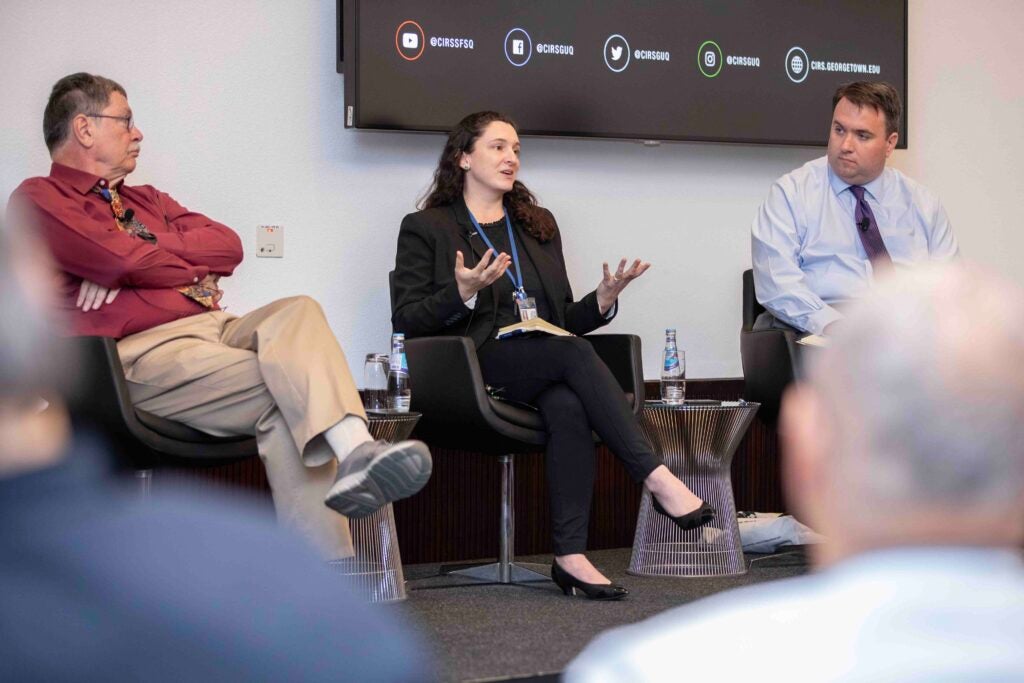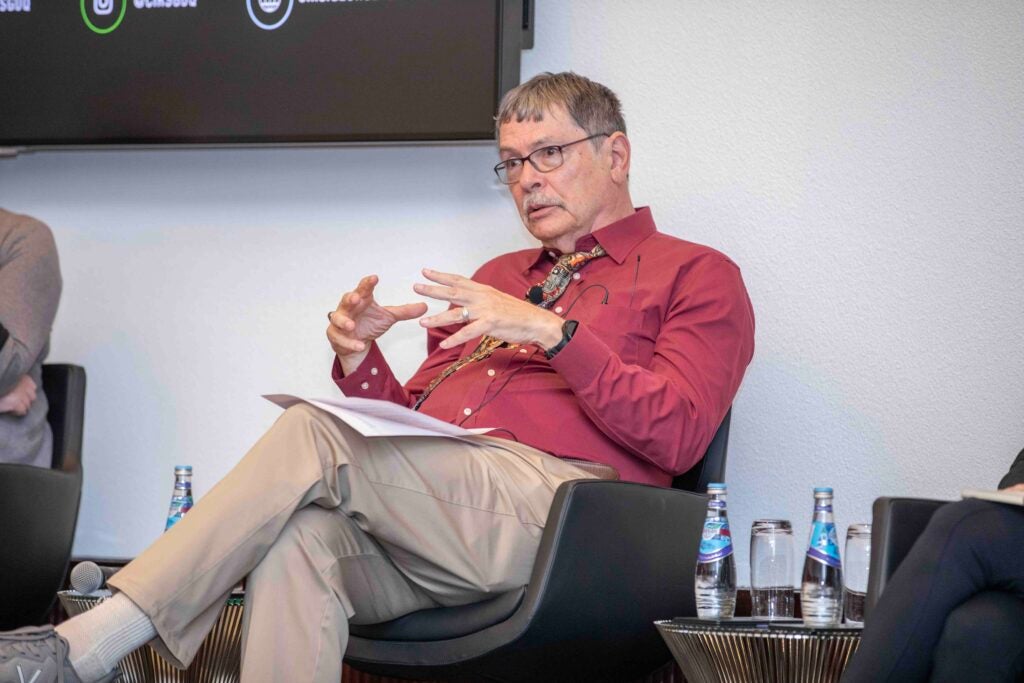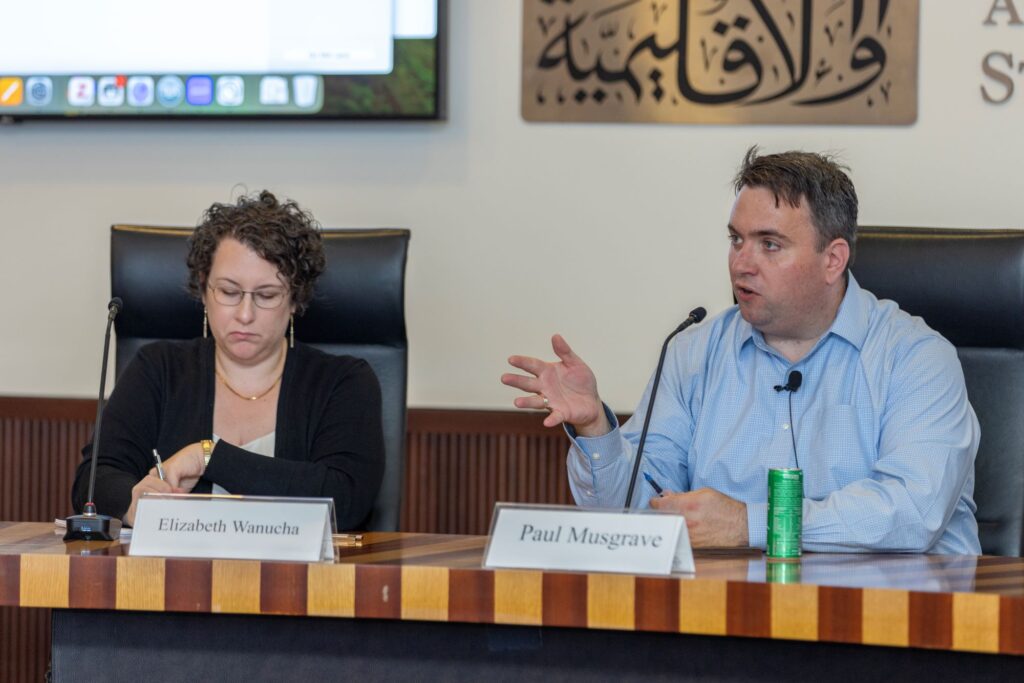CIRS Explores U.S. Election Strategy and Voter Trends

In the heated run-up to the U.S. presidential election, Georgetown University in Qatar (GU-Q) is diving deep into American democracy through a series of events hosted by the Center for International and Regional Studies (CIRS). Two talks featuring leading GU-Q faculty offered nuanced discussions on the forces shaping the electoral landscape—from party politics and voter behavior to the strategies behind running a presidential campaign.
“Party Politics, Voter Behavior, and Hot Topic Issues:” A Shifting Landscape
“What a difference a month makes,” began Dr. Clyde Wilcox, Professor of Government at GU-Q, capturing the volatile nature of the current election cycle. Alternating between humor and seriousness, Professor Wilcox and fellow panelists Dr. Amanda Garrett, Assistant Professor of Political Science, and Dr. Paul Musgrave, Associate Professor of Government, dissected the campaign strategies, emphasizing the unusual characteristics of this election.

One key factor influencing the outcome is the Democrats’ strategic ambiguity on certain issues. According to Professor Garrett, this might be a calculated effort to “cast its net as wide as possible.” However, she warned that this approach could backfire, drawing parallels to centrist losses in European elections.
The election will also have far-reaching global implications. “Americans don’t vote on foreign policy, but foreign policy is determined by American elections,” stated Professor Musgrave. He emphasized that the Harris campaign’s approach to international relations, particularly in the Middle East, remains a pivotal aspect of this election. “The Harris campaign has been muted on Gaza,” Professor Musgrave noted, pointing out that American foreign policy is not as one-sidedly in favor of Israel as before. “It’s an issue that really complicates matters a great deal for the Democratic coalition.”
Identity politics is another critical factor, with Professor Wilcox stressing the significance of Vice President Kamala Harris being “the first African-American woman, the first Asian-American woman” to be a major party’s nominee.
Looming over all these factors is how the election “poses a very special threat to American democracy.” According to Professor Wilcox, when Donald Trump lost the last election, his aides reported that, “He was calling state legislators and saying, ‘Why don’t you just pretend I won and certify my electors?’” This raises critical questions about whether the election results will be accepted as legitimate this time around, possibly leaving the final decision to the courts.

Professor Wilcox also touched on the gender dynamics that often influence campaign strategies, noting that “there are gendered expectations about elections, which may not apply here, but the normal understanding of a man running against a woman is that neither side can be very aggressive.” However, he pointed out that these traditional attitudes are shifting, potentially giving Vice President Harris more leeway to challenge Trump without facing the usual backlash.
“Inside a U.S. Presidential Campaign:” The Mechanics of Victory
In a second talk, Professor Musgrave provided a behind-the-scenes look at the presidential campaigns, emphasizing the critical role of every vote in battleground states where razor-thin margins could determine the outcome.

He pointed out that Vice President Harris’s entry into the race has intensified the competition by broadening the electoral map, especially in these key states. “The map is still very narrow, but it is much larger than it had been,” he noted.
Professor Musgrave observed that the United States is becoming increasingly multiracial, a reality that only one party has fully embraced. He highlighted that the Republican Party’s base remains predominantly white and less educated than Democrats, a sentiment famously echoed by former President Trump’s remark, “I love the poorly educated.”
The Battle for the American Voter
Throughout the talks, speakers drew attention to how the stakes in this election extend far beyond individual candidates—they represent the future course of American democracy. While the complexities are evident, the winning strategy is straightforward. “Whichever candidate successfully distances themselves from the status quo and positions themselves as a beacon of change is likely to win,” predicts Professor Garrett.
As the election draws nearer, GU-Q’s CIRS will continue to host events offering valuable insights into the forces shaping this pivotal moment in U.S. history. Through expert analysis and engaging discussions, these talks give the community a front-row seat to the unfolding drama of American democracy.